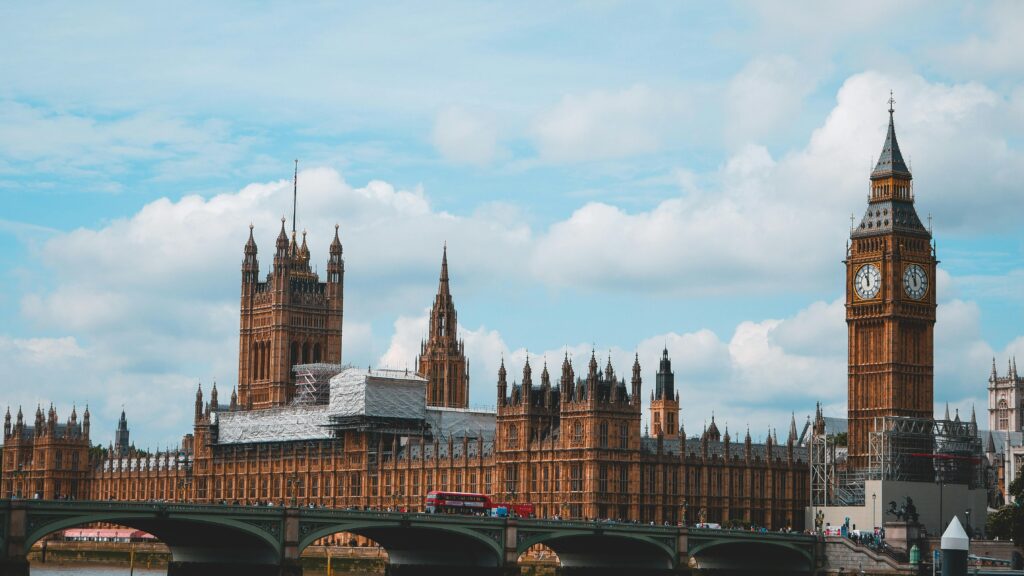
An update from our Parlimentary Advisors
The Department for Science, Innovation and Technology has announced that local charities and councils could benefit from £9.5 million in new UK government funding to turbo-charge grassroots efforts to help the 1.6 million people in the UK who can’t access to online world.
The money will support the best and smartest ways of tackling digital exclusion, which could include putting on workshops to familiarise people with tech, schemes donating devices like phones and laptops to the digitally excluded, all led by local councils, charities and other bodies working in the heart of their communities.
Within the press release, the Government recognises that digital exclusion is holding too many people back and tackling it is critical to driving growth, which is at the heart of the government’s Plan for Change. Research suggests that 7.9 million adults across the UK lack basic digital skills, while 1.6 million people live offline altogether.
A new Transport Committee report calls on the Government to reform the way local bus services are funded and to adopt a national ambition for a minimum level of public transport connectivity. This would protect residents in England’s towns and villages from becoming increasingly isolated, MPs say.
Findings and recommendations are as follows:
The real-world consequences of bus decline
- One anecdote provided to the Committee by the charity Sustrans, from a young man in Pembrokeshire, described how they were denied a job because the employer said they wouldn’t be able to rely on a bus for their commute. “We’ve had people try to use the buses before… it just doesn’t work […] you’ll probably have to drive or have some alternative way to get in,” they were told.
- A woman in her seventies from Dorset said she could no longer travel independently after all her local buses were cancelled. Unable to drive, she now relies on neighbours for essential trips and has become “far more isolated, lonely and depressed.”
- Meanwhile, Research by KPMG estimated that bus passengers spend £39.1bn annually in local businesses, and that over 2.2 million commuters rely on buses to get to work, generating £72bn in collective income each year. The same analysis suggested that every £1 invested in bus services would yield an economic benefit ranging from £4.55 to £5.
Safeguarding ‘socially necessary’ routes
- The Committee heard that, amid a backdrop of scarce funding and revenue, bus firms have been incentivised to cut less commercially viable services and prioritise those that attract more fare revenue, leaving some communities even more isolated.
- DfT has said local authorities will be left to determine their own socially necessary routes. But in principle they would ensure that communities are not cut off from being able to access the most vital services, such as their local hospital, schools and other important amenities.
- The Government has said it wants councils and bus firms to earmark and protect those socially necessary services. But the Committee recommends that ministers ensure this by ringfencing a portion of the funding it gives locally so that there is a practical requirement to protect those socially necessary routes.
A minimum level of connectivity
- DfT should adopt a national ambition for councils to provide a minimum level of public transport connectivity by the end of this Parliament (2028-29). The Committee is calling for this minimum level to be considered regionally as well as being supported by long-term government funding.
- Decisions should be made locally about whether this minimum level of connectivity can best be delivered by a conventional, timetabled bus service, or instead by alternative models such as demand-responsive transport (DRT). This is where typically smaller buses can collect and drop off passengers from locations by request, making them more flexible.
Five-year funding deals
- The report notes that DfT said in its written evidence that “investment in measures to improve journey times and reliability […] promotes patronage and brings down operating costs,” enabling reinvestment in services and creating “a virtuous cycle”.
- Yet government funding has for years been provided on an annual basis and subject to change, making it difficult for councils and bus firms to plan ahead.
- However, in the Spending Review (June 2025) the Government confirmed it would spend £900m a year on bus services for the next three years. The Chancellor also announced funding settlements for city region mayors to spend on all forms of transport, from 2027-28 to 2031-32.
- The Committee welcomes the Government’s longer-term approach, but recommends that it set five-year settlements for both capital and revenue funding. This would enable all transport authorities to make sustainable improvements.
Young people’s life chances constrained
- Limited services and high fares make it harder for young people to reach college, training , entry-level jobs, or shift-based work. Somerset Council told us some local young people faced three to four hours of daily travel to reach education, affecting both their learning and wellbeing.
- England’s patchwork of local youth concessions requires a coherent national approach to ensure fair access and to drive economic growth and equal opportunity. DfT’s review of the English National Concessionary Travel Scheme should consider piloting a free bus pass for under-22s, valid for travel at any time of day.
The bus fare cap lacks a strategy
- Bus and coach fares in the UK have increased by 505% since 1987, far outpacing inflation over the same period (280%), as well as rail fares and motoring costs.
- Between 2022-23 and 2023-24, the bus fare cap helped bus ridership in largely rural areas rise by 10.1%. But the Committee argues that the Government’s bus fare caps, though positive, are only a short-term measure.
- DfT should develop, in partnership with local transport authorities and within 12 months, clear strategic priorities for what bus fares are aiming to achieve. It should articulate the strategic purpose of fare structures and guide consistent, transparent fare-setting at a local level.
Franchising not a silver bullet
- When done successfully, franchising can offer a pathway to more integrated and accountable services. However, many hollowed-out local authorities currently lack the legal, commercial, and operational capacity to take on the risks and challenges of franchising.
- DfT’s Bus Centre of Excellence should be expanded to provide more targeted support to local authorities that may look to adopt franchising.
Grants should be weighted towards rural areas
- Two major sources of state funding, the Bus Service Operators Grant and capital funding for Bus Service Improvement Plans, are calculated in a way that fails to recognise the distinct challenges of running services in rural areas. Operating costs in isolated areas are often higher due to longer journey distances and low population densities, yet the services are just as vital to those residents who use them.
- DfT should consider introducing a rural weighting into its revised Bus Service Improvement Plan funding formula to reflect the higher per-passenger costs. This would help ensure that ambitions to improve are not undermined by geographic disadvantage.
- The Bus Service Operators Grant provides funds based on how much fuel is used. As urban services tend to consume more fuel per mile compared with rural services, this leaves rural services in receipt of relatively less funding for having to travel longer distances. The Committee also says DfT should reform the Grant so that it would instead be based on passenger journeys, which would further incentivise operators to grow their passenger numbers.

